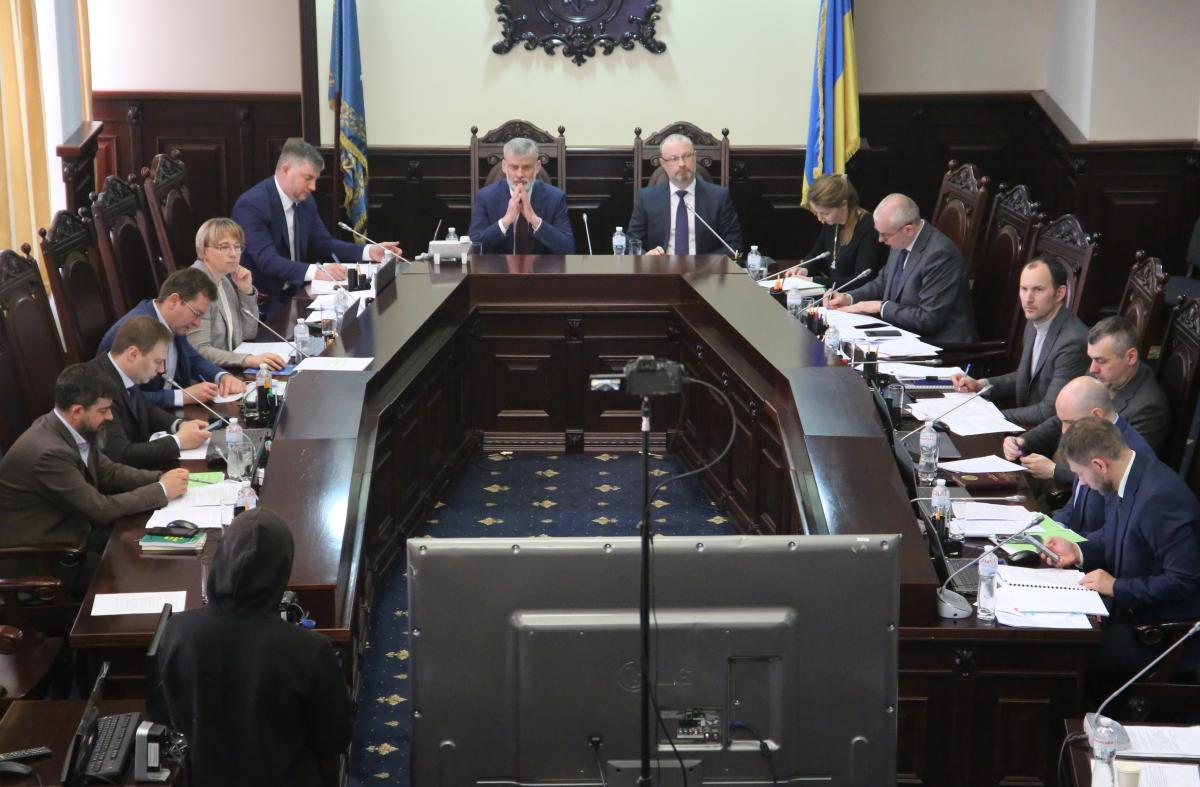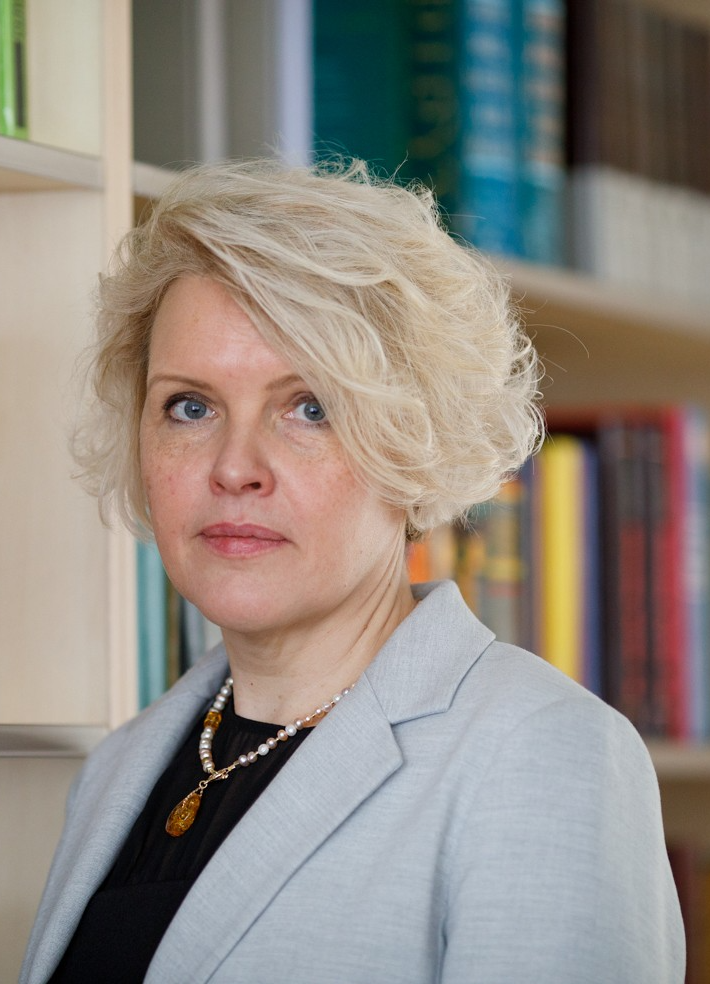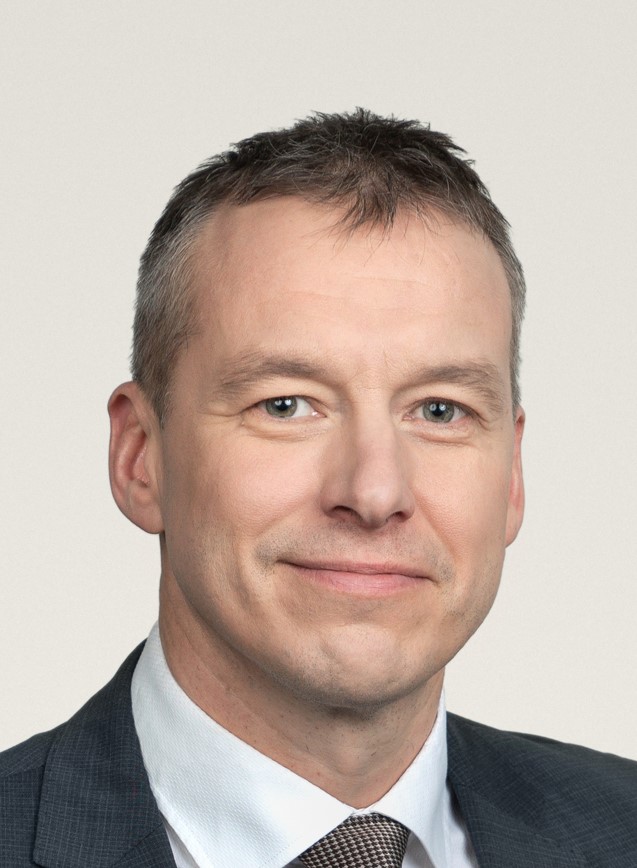The Commission elected members of the Public Council of International Experts

On April 29, 2024, during a session of the High Qualification Commission of Judges of Ukraine, a new composition of the Public Council of International Experts (PCIE) was elected, which included six foreign legal experts – judges and prosecutors with experience in Estonia, the USA, Lithuania, the Netherlands, and Canada.
The PCIE’s mission is to assist the Commission in conducting the competition for vacant positions of judges of the High Anti-Corruption Court (HACC) announced on November 23, 2023, in particular, for 15 positions of judges of the High Anti-Corruption Court as a court of first instance and 10 positions of judges of the Appeals Chamber of this court.
Thus, the Public Council of International Experts was composed of international experts:
1. Mary K. Butler.
2. Gabrielė Juodkaitė-Granskienė.
3. Nоrman Aas.
4. Robert Hein Broekhuijsen.
5. Jessica Lott Thompson.
6. John J. O’Sullivan.
The Public Council of International Experts will, in particular, help the Commission determine the suitability of candidates for the positions of judges of the High Anti-Corruption Court based on the following criteria:
- legality of the sources of property origin;
- compliance of the candidate’s or his family members’ standard of living with the declared income;
- compliance of the candidate’s lifestyle with his/her status;
- availability of knowledge and practical skills to consider cases within the HACC’s jurisdiction.
The interviews with the candidates took place on April 24 and 26 via videoconference, during which HQCJ members had the opportunity to talk to the PCIE candidates in person. The nominees were recommended by the European Union (EU), the European Anti-Fraud Office (OLAF) and the Organization for Economic Co-operation and Development (OECD).
The Deputy Chairman of the Commission, Ruslan Sydorovych, noted that with the support of international partners, the Commission was able to promptly implement the steps stipulated by the Law of Ukraine “On the High Anti-Corruption Court” and elect a new PCIE, having carefully studied the biographical references of all candidates.
“Each of them has a strong professional experience, impeccable business reputation, and public authority, so the Commission had a difficult task to choose the best. Through discussion, the HQCJ managed to make a difficult choice, despite the fact that each of the proposed candidates has the necessary knowledge, qualities and experience,” emphasized Mr. Sydorovych.
He also assured that the members of the Commission and the Council are aware of the amount of work that the HQCJ and PCIE will have to do in the near future, and expressed readiness to pursue the common goal of holding an open and transparent competition to the High Anti-Corruption Court.
Brief biographical profiles of the elected members of the Public Council of International Experts:
 Mary K. Butler is a prosecutor from the United States. She graduated from Vassar College and the University of Wisconsin Law School. She is the Chief of the International Unit of the Money Laundering and Asset Recovery Section (MLARS) of the U.S. Department of Justice. Before coming to MLARS in July 2014, Mary worked for many years as an anti-corruption prosecutor in specialized anti-corruption units in the Justice Department in Washington, DC, and in the United States Attorney’s Office in Miami, Florida. As a career anti-corruption prosecutor, she prosecuted many lobbyists, state and local law enforcement officers, and public officials at all levels of government, including a U.S. Congressman. She worked for 11 years in the Public Integrity Section at Main Justice and for 12 years in the United States Attorney’s office in the Southern District of Florida in Miami. At the USAO Miami, she served as a trial attorney in general crimes and economic crimes units and as the Chief of the Public Corruption Section Chief. She also served for three years as a Resident Legal Advisor in Ukraine in the Justice Department’s Overseas Prosecutorial Development Assistance and Training.
Mary K. Butler is a prosecutor from the United States. She graduated from Vassar College and the University of Wisconsin Law School. She is the Chief of the International Unit of the Money Laundering and Asset Recovery Section (MLARS) of the U.S. Department of Justice. Before coming to MLARS in July 2014, Mary worked for many years as an anti-corruption prosecutor in specialized anti-corruption units in the Justice Department in Washington, DC, and in the United States Attorney’s Office in Miami, Florida. As a career anti-corruption prosecutor, she prosecuted many lobbyists, state and local law enforcement officers, and public officials at all levels of government, including a U.S. Congressman. She worked for 11 years in the Public Integrity Section at Main Justice and for 12 years in the United States Attorney’s office in the Southern District of Florida in Miami. At the USAO Miami, she served as a trial attorney in general crimes and economic crimes units and as the Chief of the Public Corruption Section Chief. She also served for three years as a Resident Legal Advisor in Ukraine in the Justice Department’s Overseas Prosecutorial Development Assistance and Training.
 Gabriele Juodkaitė-Granskienė is a judge from Lithuania. She has a law degree from Vilnius University (1996) and a PhD in Criminal Law, “Formation and Evaluation of Forensic Conclusions”, (2003). Starting in 1996 she worked in the Forensic Science Centre of Lithuania, being its director from 2004 to 2017. Since 2017, she has served as a Justice of the Supreme Court of Lithuania, including as the Chief Justice of the Criminal Division since 2022. Since 1997, she has also been a lecturer on forensic examination, evidence collection and proving procedures, and criminal procedure at Vilnius University’s Faculty of Law.
Gabriele Juodkaitė-Granskienė is a judge from Lithuania. She has a law degree from Vilnius University (1996) and a PhD in Criminal Law, “Formation and Evaluation of Forensic Conclusions”, (2003). Starting in 1996 she worked in the Forensic Science Centre of Lithuania, being its director from 2004 to 2017. Since 2017, she has served as a Justice of the Supreme Court of Lithuania, including as the Chief Justice of the Criminal Division since 2022. Since 1997, she has also been a lecturer on forensic examination, evidence collection and proving procedures, and criminal procedure at Vilnius University’s Faculty of Law.
 Norman Aas is a lawyer from Estonia. He has a BA in Law from the University of Tartu, Estonia (1998) and a master’s degree in law from the University of Greifswald, Germany (2001). From 1997 to 2017, he held different positions at the Prosecutor’s Office and the Ministry of Justice of Estonia. Has expertise in the fields of criminal law and criminal proceedings, including investigation of economic offenses and offenses relating to public office. As Prosecutor General of Estonia from 2005 to 2014, he was responsible for organizing the prosecution of large-scale corruption offenses. From 2005 to 2014, he was also a member of the Council for the Administration of Courts in Estonia. One of whose tasks was to assess the suitability of candidates to become a justice in the Supreme Court. At the same time, he was the Council’s chair for the appointment of prosecutors, and during his tenure considered hundreds of candidates competing for various high-level judicial offices. He is a lecturer on criminal law and criminal proceedings at Tallinn University and co-author of commentaries on several laws. Currently, he works as a private lawyer serving as a partner of a private law firm.
Norman Aas is a lawyer from Estonia. He has a BA in Law from the University of Tartu, Estonia (1998) and a master’s degree in law from the University of Greifswald, Germany (2001). From 1997 to 2017, he held different positions at the Prosecutor’s Office and the Ministry of Justice of Estonia. Has expertise in the fields of criminal law and criminal proceedings, including investigation of economic offenses and offenses relating to public office. As Prosecutor General of Estonia from 2005 to 2014, he was responsible for organizing the prosecution of large-scale corruption offenses. From 2005 to 2014, he was also a member of the Council for the Administration of Courts in Estonia. One of whose tasks was to assess the suitability of candidates to become a justice in the Supreme Court. At the same time, he was the Council’s chair for the appointment of prosecutors, and during his tenure considered hundreds of candidates competing for various high-level judicial offices. He is a lecturer on criminal law and criminal proceedings at Tallinn University and co-author of commentaries on several laws. Currently, he works as a private lawyer serving as a partner of a private law firm.
 Robert Hein Broekhuijsen is a lawyer from the Netherlands. He graduated from Leiden University in 1982. From 1982 to 2003 he was a Marine and Insurance attorney working worldwide. From 1999, he was a managing partner of DLA law firm in the Netherlands, and from 2003, he worked as an executive board member of DLA LLP. From 2005 to 2012, he served as Special Prosecutor in the Serious Fraud Office of the Dutch Prosecution Service in charge of various major fraud, corruption, and money laundering investigations. As lead prosecutor, he successfully prosecuted the most significant corruption case ever in the Netherlands. He worked on multiple complex international fraud and corruption cases in the U.S., UK, India, and the Middle East, provided expert assistance on the issues of money laundering, assets tracing, and combating corruption to the Stolen Asset Recovery Initiative (StAR), a partnership of the World Bank and UNODC; provided advice and training on investigating and fighting corruption in Moldova, Jordan, and Thailand programs. Presently, he is founder of a law firm, advising corporations, authorities, and countries on corruption-related issues, performing investigations into corruption, and defending corporations against corruption charges. He also works as a judge in the Disciplinary Court of Appeal of the Dutch Bar. Since 2021, he has been a member of the Selection Commission for the Selection of Candidates for the Positions of Members of the High Qualification Commission of Judges of Ukraine.
Robert Hein Broekhuijsen is a lawyer from the Netherlands. He graduated from Leiden University in 1982. From 1982 to 2003 he was a Marine and Insurance attorney working worldwide. From 1999, he was a managing partner of DLA law firm in the Netherlands, and from 2003, he worked as an executive board member of DLA LLP. From 2005 to 2012, he served as Special Prosecutor in the Serious Fraud Office of the Dutch Prosecution Service in charge of various major fraud, corruption, and money laundering investigations. As lead prosecutor, he successfully prosecuted the most significant corruption case ever in the Netherlands. He worked on multiple complex international fraud and corruption cases in the U.S., UK, India, and the Middle East, provided expert assistance on the issues of money laundering, assets tracing, and combating corruption to the Stolen Asset Recovery Initiative (StAR), a partnership of the World Bank and UNODC; provided advice and training on investigating and fighting corruption in Moldova, Jordan, and Thailand programs. Presently, he is founder of a law firm, advising corporations, authorities, and countries on corruption-related issues, performing investigations into corruption, and defending corporations against corruption charges. He also works as a judge in the Disciplinary Court of Appeal of the Dutch Bar. Since 2021, he has been a member of the Selection Commission for the Selection of Candidates for the Positions of Members of the High Qualification Commission of Judges of Ukraine.
 Jessica Lott Thompson is a lawyer from Canada. In 2003, she received a Bachelor of Laws LL.B, from the University of Victoria, Victoria, British Columbia, and a Master of Laws LL.M. (Constitutional Law) from Osgoode Hall Law School, York University, Toronto, Canada, in 2017. From 2008 to 2014, she served as a Federal Criminal Prosecutor in the Public Prosecution Service of Canada, where she was responsible for criminal and administrative law litigation. From 2015 to 2020 she was Director of Human Rights for Yukon, responsible for the administration of the Yukon Human Rights Commission and investigation of complaints against government, business and organizations. She currently works as a senior lawyer in criminal law, administrative and constitutional law, human rights, and law reform and also is the Chair of the War Crimes Accountability Working Group of the Ukrainian Canadian Bar Association, and an OSCE-ODIHR International Election Observer. From 2017 to 2019, she was appointed by the Minister of Justice of Canada to serve as a Member of the Federal Judicial Advisory Committee for Yukon. In that role, she was responsible for assessment, evaluation, consultation, and document review, and recommendations to the federal Minister of Justice on Superior Court Level judicial appointments, according to constitutional, ethical, and policy requirements.
Jessica Lott Thompson is a lawyer from Canada. In 2003, she received a Bachelor of Laws LL.B, from the University of Victoria, Victoria, British Columbia, and a Master of Laws LL.M. (Constitutional Law) from Osgoode Hall Law School, York University, Toronto, Canada, in 2017. From 2008 to 2014, she served as a Federal Criminal Prosecutor in the Public Prosecution Service of Canada, where she was responsible for criminal and administrative law litigation. From 2015 to 2020 she was Director of Human Rights for Yukon, responsible for the administration of the Yukon Human Rights Commission and investigation of complaints against government, business and organizations. She currently works as a senior lawyer in criminal law, administrative and constitutional law, human rights, and law reform and also is the Chair of the War Crimes Accountability Working Group of the Ukrainian Canadian Bar Association, and an OSCE-ODIHR International Election Observer. From 2017 to 2019, she was appointed by the Minister of Justice of Canada to serve as a Member of the Federal Judicial Advisory Committee for Yukon. In that role, she was responsible for assessment, evaluation, consultation, and document review, and recommendations to the federal Minister of Justice on Superior Court Level judicial appointments, according to constitutional, ethical, and policy requirements.
 John J. O’Sullivan is a retired judge from the United States. In 1985, he received a Juris Doctorate degree, from the University of Miami. He graduated with a BA from the State University of New York in Albany. He served as a Magistrate Judge from 1999 to 2022. Before being appointed a Magistrate Judge, he was the Chief of the Criminal Division of the United States Attorney’s Office for the Southern District of Florida. He joined the United States Attorney’s Office in 1986. He served as Chief of the Narcotics Section, Senior Litigation Counsel, and Deputy Chief and Acting Chief of the Economic Crimes Section. He prosecuted several significant public corruption cases involving police officers, government officials, and judges, including Operation Courtroom, a judicial corruption investigation, and the prosecution of several state judges and attorneys. In August 1995, he was appointed Deputy Independent Counsel in the late Secretary of Commerce Ron Brown’s investigation and served in that capacity for one year. From 1978 to 1985, he was a Special Agent with the Criminal Investigation Division of the Internal Revenue Service. He has lectured at the International Law Enforcement Academies in Budapest, Hungary, and Gaborone, Botswana, the National Advocacy Center, the Federal Law Enforcement Training Center, the Federal Bureau of Investigation Academy, and the Inspector General’s Academy.
John J. O’Sullivan is a retired judge from the United States. In 1985, he received a Juris Doctorate degree, from the University of Miami. He graduated with a BA from the State University of New York in Albany. He served as a Magistrate Judge from 1999 to 2022. Before being appointed a Magistrate Judge, he was the Chief of the Criminal Division of the United States Attorney’s Office for the Southern District of Florida. He joined the United States Attorney’s Office in 1986. He served as Chief of the Narcotics Section, Senior Litigation Counsel, and Deputy Chief and Acting Chief of the Economic Crimes Section. He prosecuted several significant public corruption cases involving police officers, government officials, and judges, including Operation Courtroom, a judicial corruption investigation, and the prosecution of several state judges and attorneys. In August 1995, he was appointed Deputy Independent Counsel in the late Secretary of Commerce Ron Brown’s investigation and served in that capacity for one year. From 1978 to 1985, he was a Special Agent with the Criminal Investigation Division of the Internal Revenue Service. He has lectured at the International Law Enforcement Academies in Budapest, Hungary, and Gaborone, Botswana, the National Advocacy Center, the Federal Law Enforcement Training Center, the Federal Bureau of Investigation Academy, and the Inspector General’s Academy.
